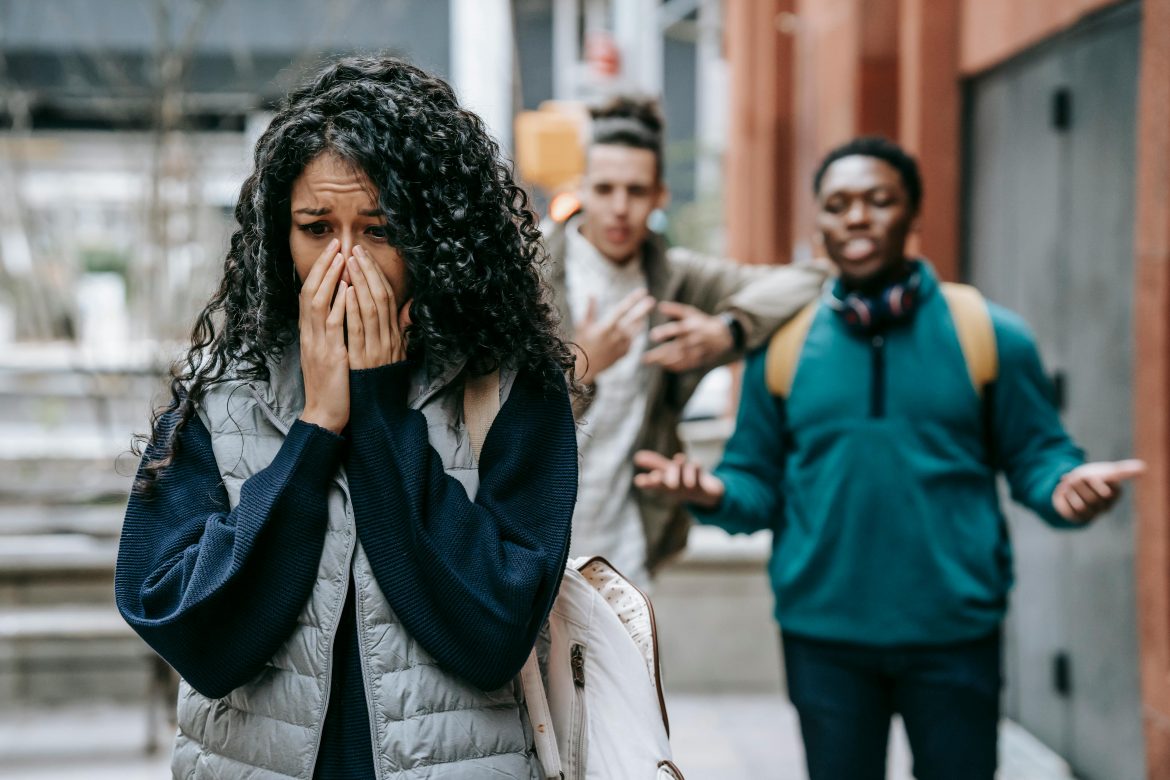As a woman of colour born and bred in South Africa, the subject of abuse is not foreign to me at all. The socio-economic issues that exist and go hand-in-hand with race, is in fact, what makes my feminism intersectional. It looks at how vulnerabilities are different, given where you find yourself at different intersections.
For example, a black woman’s lived experience growing up in the township is different to a white woman’s who grew up in the suburbs, which is different to a coloured woman’s experience on the Cape Flats. While we all may be women and South African women simultaneously, our exposure and vulnerabilities vary.
Since there have been a number of stories of various types of abuse coming to light as of late, and when we are in it ourselves, we can’t always spot the red flags from the jump. I thought it might be valuable to understand the many faces of abuse and what their tell-tales are.
Physical abuse
This is the most common type of abuse to recognise simply because the symptoms are physical. It involves the intentional bodily harm or injury inflicted on a person by a partner, parent or relative. The signs may include bruises, broken bones, burns, cuts, and frequent injuries.

Image credit: Pexels
Verbal abuse
Verbal abuse is another one of those in-your-face types of abuse as it involves the use of words to demean, intimidate, or control a person. It may present as frequent criticism, insults, yelling, name-calling, and threats of harm.
Sexual abuse
Sexual abuse encompasses any form of unwanted sexual activity, exploitation or sexual advances made on an underaged person. It may result in sudden changes in the victim’s behaviour, such as becoming withdrawn or overly sexualized, and avoidance of specific individuals or places.
Emotional or psychological abuse
This type of abuse is a little harder to spot as it involves manipulation, intimidation, threats, and degradation that could affect a person’s mental well-being. It’s hard to pinpoint because a person who is manipulated often doesn’t realise that that’s what’s happening in their reality.
They may blame themselves or think that their reality is the norm, which may stem from low self-esteem. Emotional abuse is meant to control, isolate, or frighten the victim. It may present as threats, insults, obsessive monitoring, and dismissiveness, but it may also be more subtle and show up as excessive jealousy. In the long run, it may also lead to anxiety, depression, withdrawal from social activities, and fearfulness.
Financial abuse
This is one of those forms of abuse that we don’t hear much about, but it’s as real as the more common forms. It involves the exploitation or misuse of a person’s financial resources. If you see signs like sudden changes in your financial situation, perhaps it’s time to investigate and/or reassess the relationships around you. If there are unexplained withdrawals from your bank accounts, or unauthorized use of your credit cards, or even if you have a friend, relative or partner who seems to always have their hands out, it could be a sign too. In more severe cases, they could be withholding financial information from the victim.
Neglect
Neglect occurs when a caregiver fails to provide adequate care and resources for a dependent individual, such as a child or elderly person. This may present as poor hygiene, malnutrition, untreated medical conditions, lack of appropriate clothing or shelter, and social isolation.

Image credit: Pexels
Spiritual abuse
This type of abuse is also a lesser-known type of abuse that involves the use of religious or spiritual beliefs to manipulate, control, or harm others. Signs may include forced participation in religious activities, isolation from other beliefs or communities, and feelings of guilt or shame related to one’s spirituality. Spiritual abuse can also be a combination of other forms of abuse, such as financial or sexual.
If you or someone you know may need help or assistance, here are a couple of helplines that you can call:
People Opposed to Woman Abuse (Powa)
- Website: http://www.powa.co.za
- Tel: 011 642 4345
- E-mail: [email protected]
- Social media: Facebook and Twitter
Childline South Africa
- Website: https://www.childlinesa.org.za/
- Toll-free helpline: 116
- E-mail: [email protected]
- Social media: Facebook and Twitter
Child Welfare South Africa
- Website: http://childwelfaresa.org.za/
- Tel: 074 080 8315
- E-mail: [email protected]
- Social media: Facebook and Twitter
Families South Africa (Famsa)
- Website: http://www.famsaorg.mzansiitsolutions.co.za/
- Tel: 011 975 7106/7
Tears Foundation
- Website: http://www.tears.co.za/
- Free SMS helpline: *134*7355#
- Tel: 010 590 5920
- Email: [email protected]
Gender-Based Violence Command Centre: 0800 428 428
STOP Gender Violence Helpline: 0800 150 150/ *120*7867#
Halt Elder Abuse Line (Heal) – helpline for elderly people helpline: 0800 003 081
E-mail: [email protected]
SAPS emergency number: 10111
ALSO SEE:
Balancing the books: Tips for navigating finances as a couple
Feature image: Pexels

